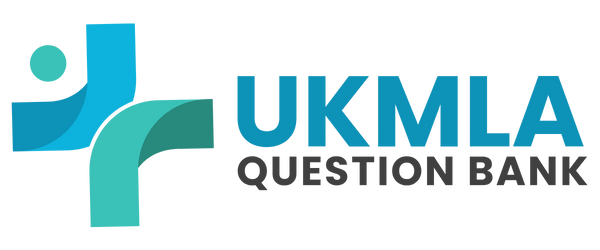Introduction
Creating a 6 month ukmla study plan is one of the most powerful steps you can take toward exam success. While some may thrive on shorter, more intense preparation, a longer timeline offers the invaluable opportunity to build a deep, lasting foundation of knowledge, master clinical reasoning, and avoid the burnout that plagues so many candidates. A six-month period allows for a calmer, more sustainable pace, enabling you to integrate learning with your existing commitments, such as university placements or work.
This guide provides a comprehensive, week-by-week template designed to be adapted to your unique needs. We will break down the six-month journey into three distinct phases: a foundational phase for broad content coverage, a consolidation phase for honing exam technique, and a final preparation phase for achieving peak performance. This is not just a schedule; it’s a strategic framework for building both knowledge and confidence.
Table of Contents
ToggleBefore You Begin: Foundations of a Great Study Plan
A successful study plan requires more than just a calendar. Before you allocate a single topic, you need to lay the groundwork.
Step 1: Honest Self-Assessment and Goal Setting
Start by conducting an honest self-assessment. What are your known weak areas from medical school? Where are your knowledge gaps biggest? Use the official GMC UKMLA Content Map as your guide to see the full scope of the curriculum. Your goal is not just to “pass the UKMLA,” but to set SMART goals (Specific, Measurable, Achievable, Relevant, Time-bound). A better goal would be, “I will improve my weakest three subjects by 20% in mock exams within the first two months.”
Step 2: Choosing Your Core Resources (QBank and Books)
Your study plan is only as good as the resources you use. At a minimum, you need one high-quality, comprehensive question bank and one or two core reference textbooks (like the Oxford Handbook of Clinical Medicine). A longer, six-month plan gives you more time to integrate these resources effectively. Knowing how to use a UKMLA question bank effectively is a skill in itself; it should be your primary tool for active learning, with books used for reference.
The Foundational Phase: Months 1-2
The first two months are about building a broad, solid base of knowledge across the entire curriculum. The pace should feel steady and manageable.
Goal: Broad Content Coverage & Identifying Weaknesses
The primary objective here is to work through every major clinical specialty, refreshing your memory and identifying areas you’ve forgotten or never properly understood. Don’t get bogged down in minutiae; the aim is to ensure you have a solid grasp of the fundamentals for each topic listed in the content map. This phase is less about speed and more about depth.
Weekly Template: System-by-System Review Integrated with Untimed Questions
A great way to structure these months is to dedicate one to two weeks to each major system (e.g., Cardiology, Respiratory, Endocrinology).
Monday-Friday: Focus on a specific system. Review your core textbook chapters and make summary notes or flashcards. At the end of each day, do a small number of untimed question bank questions on the topics you’ve just covered. The goal here is to learn and understand the explanations, not to test yourself against the clock.
Saturday: A longer, mixed-subject question block to simulate knowledge retrieval. Review your notes from the week.
Sunday: Rest. This is non-negotiable and crucial for memory consolidation.
The Consolidation Phase: Months 3-4
With a broad knowledge base established, these two months are about transitioning from learning information to applying it under pressure. The intensity increases here.
Goal: Active Recall and Improving Exam Technique
The focus now shifts almost entirely to active learning. You should be spending the majority of your study time inside your question bank. This phase is about strengthening your memory pathways through active recall and spaced repetition and getting comfortable with the style and timing of UKMLA questions.
Weekly Template: Timed QBank Blocks and In-Depth Review
Your weeks should now be structured around timed practice.
Monday-Friday: Complete at least one timed, mixed-subject block of questions each day. After completing the block, spend double the amount of time reviewing the explanations for every single question, both right and wrong. Create flashcards for any facts you missed.
Saturday: A longer session dedicated to reviewing all the flashcards and notes you created during the week. You could also do a half-mock exam every other week.
Sunday: Rest. It’s even more important now as the intensity ramps up.
The Perfect 6 month ukmla study plan: Final Preparations (Months 5-6)
These final two months are about simulating the exam and achieving peak performance. This is where all your hard work comes together.
Goal: Exam Simulation and Peak Performance
The objective is to make the real UKMLA feel like just another mock exam. You want to have your timing, pacing, and mental stamina honed to perfection. This phase is also for targeted revision of any remaining weak areas identified during your mocks.
Weekly Template: Full Mock Exams and Targeted Weak Area Revision
Mock Exams: You should schedule at least 3-4 full-length mock exams during this period, ideally one every two weeks. These must be done under strict, timed conditions.
Analysis: The day after a mock exam should be dedicated entirely to reviewing your performance. Where did you lose marks? Was it knowledge or technique? Where did you run out of time?
Targeted Revision: Use the data from your mock analysis to guide your study for the rest of the week. If you were weak in paediatrics, spend the next few days doing only paediatrics questions and reviewing that content.
Final Week: In the last week, do not do any full mocks. Focus on light revision of key concepts, review your flashcards, and prioritize rest and a positive mindset.
Planning Principle: “A goal without a plan is just a wish.” – Antoine de Saint-Exupéry
Customising The Template: Making It Your Own
This template is a framework, not a rigid set of rules. You must adapt it to your own life.
Adjusting for Full-Time Work or University Placements
If you are not studying full-time, you will need to be realistic about what you can achieve each week. You may need to stretch the “Foundational Phase” to three months, for example. The key is consistency, even if it’s just one hour of focused work per day. For more on this, it’s worth reading about how many hours you should study for the UKMLA.
Scheduling Rest and How to Avoid Burnout
A six-month plan has a high risk of burnout if not managed properly. You must schedule protected time off in your calendar. This includes your one day off per week and also longer breaks, perhaps a full weekend off every month. Remember, your brain learns when it rests. Pushing through exhaustion is counterproductive and will lead to diminishing returns. A healthy mindset for UKMLA success is built on a foundation of sustainable habits.
Table 1: Summary of the 6-Month Study Plan Phases
| Phase | Months | Primary Goal | Key Activities |
| 1. Foundational | 1-2 | Broad content coverage, identify weaknesses | System-by-system review, untimed QBank questions |
| 2. Consolidation | 3-4 | Active recall, improve exam technique | Timed, mixed QBank blocks, in-depth review |
| 3. Final Prep | 5-6 | Exam simulation, peak performance | Full mock exams, targeted revision of weak areas |
Frequently Asked Questions (FAQ) about the 6-Month UKMLA Study Plan
For some, it might be. However, for those balancing other commitments (like final year placements or a job) or for those who prefer a less stressful, more in-depth approach, six months is an ideal timeframe.
This is highly personal. The key is the quality of your study, not the quantity. Four hours of focused, active learning is far more effective than eight hours of passive, distracted reading.
Don’t panic. A six-month plan has buffer time built in. Re-assess your schedule, see where you can realistically make up time, and adjust the plan. The worst thing you can do is abandon the plan entirely.
It’s a good idea to book your exam during the foundational phase. Having a fixed date on the calendar is a powerful motivator and helps to structure your timeline concretely.
Most successful candidates complete at least one major question bank, which is typically 3,000-4,000 questions. Over a six-month period, this is a very achievable goal.
The majority of your time should be spent on your identified weaknesses. However, you should still do mixed-subject question blocks regularly to ensure your knowledge of your stronger subjects remains fresh.
Spaced repetition is the key. Using a flashcard app like Anki for high-yield facts is the most effective way to ensure that what you learn in month one is still accessible in month six.
Yes, absolutely. You would simply shorten the foundational and consolidation phases. For example, in a 4-month plan, you might dedicate one month to foundations, two to consolidation, and one to final prep.
Consistency. A little bit of high-quality, focused work done consistently every day is far more powerful than sporadic, heroic cramming sessions.
Your plan should be built around the official curriculum provided by the GMC and the Medical Schools Council (MSC). These sites provide the definitive “what you need to know” for the exam.
Conclusion
Creating and sticking to a 6-month UKMLA study plan is a testament to your dedication and strategic thinking. It’s a proactive approach that prioritizes deep learning and well-being over last-minute stress. By breaking down this monumental task into distinct phases and manageable weekly goals, you can take control of your preparation and build a solid foundation of both knowledge and confidence.
Remember to be flexible and adapt this template to your own unique circumstances. The perfect study plan is not one that is rigid, but one that evolves with you as you identify your weaknesses and turn them into strengths. Trust in the process, stay consistent, and you will arrive on exam day not just hoping to pass, but expecting to.




